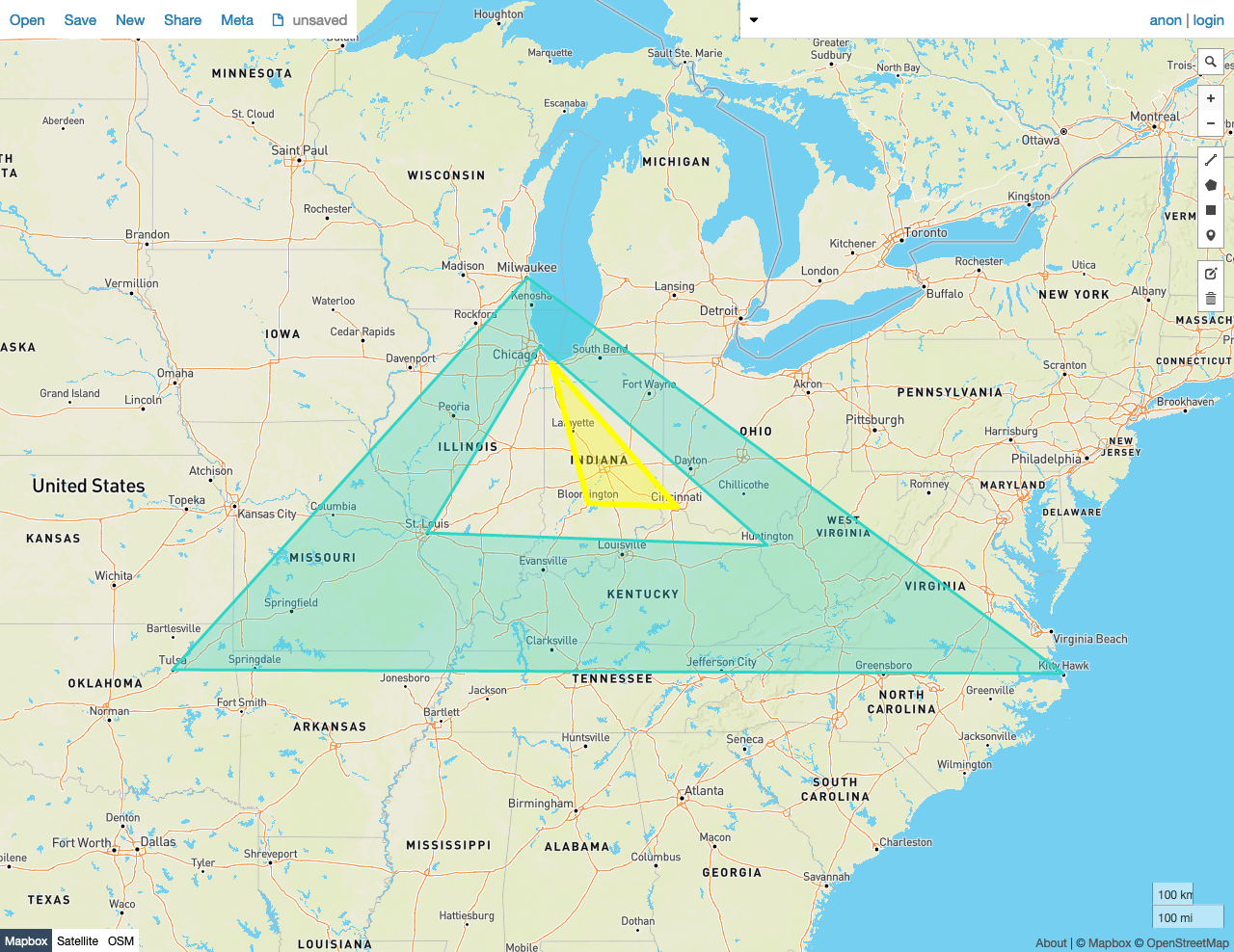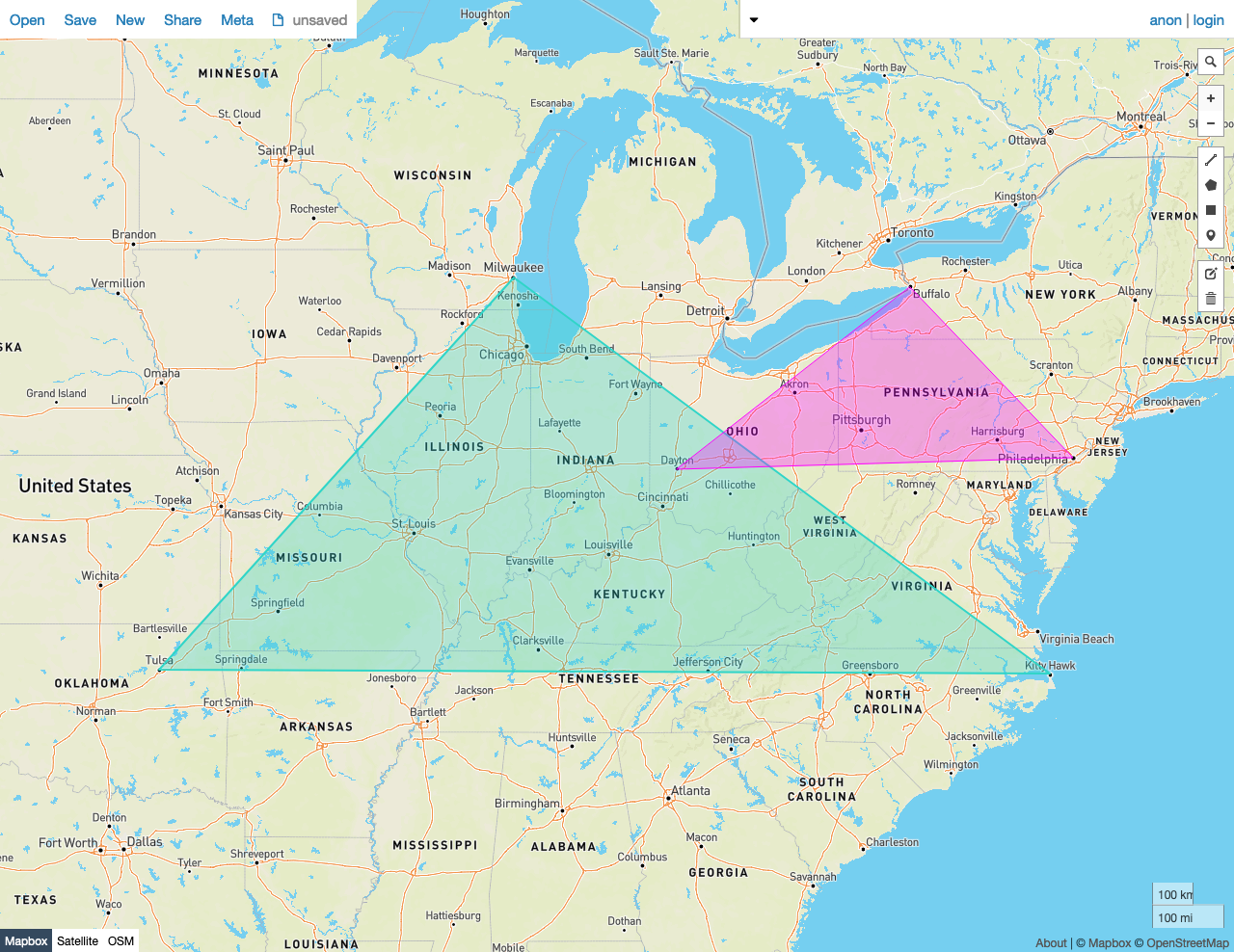
Given two shapes A and B, ST_Disjoint(A, B) returns true if the shapes do not share any of the same space -- that is, if no point in the set that comprises A is also a member of the set of points that make up B.
ST_Disjoint works on the following spatial data types:
ST_Disjoint does not make use of spatial indexes.
This function is the inverse of ST_Intersects.
Examples
The screenshots in these examples were generated using geojson.io, but they are designed to showcase the shapes, not the map. Representing GEOMETRY data in GeoJSON can lead to unexpected results if using geometries with SRIDs other than 4326 (as shown below).
True
In this example, ST_Disjoint returns true because:
- No Point in the set that comprises Polygon A is also a member of the set of points that make up Polygon B.
SELECT st_disjoint(st_geomfromtext('SRID=4326;POLYGON((-87.906471 43.038902, -95.992775 36.153980, -75.704722 36.076944, -87.906471 43.038902), (-87.623177 41.881832, -90.199402 38.627003, -82.446732 38.413651, -87.623177 41.881832))'), st_geomfromtext('SRID=4326;POLYGON((-87.356934 41.595161, -84.512016 39.103119, -86.529167 39.162222, -87.356934 41.595161))'));
st_disjoint
---------------
true
(1 row)

False
In this example, ST_Disjoint returns false because:
- Many Points in the set that comprises Polygon A are also members of the set of points that make up Polygon B.
SELECT st_disjoint(st_geomfromtext('SRID=4326;POLYGON((-87.906471 43.038902, -95.992775 36.153980, -75.704722 36.076944, -87.906471 43.038902))'), st_geomfromtext('SRID=4326;POLYGON((-84.191605 39.758949, -75.165222 39.952583, -78.878738 42.880230, -84.191605 39.758949))'));
st_disjoint
---------------
false
(1 row)

See also
- Export Spatial Data
- Spatial tutorial
- Spatial and GIS Glossary of Terms
- Spatial indexes
- Spatial functions
ST_CoversST_CoveredByST_ContainsST_WithinST_IntersectsST_CoveredByST_CoversST_EqualsST_OverlapsST_TouchesST_ConvexHullST_Union- Migrate from Shapefiles
- Migrate from GeoJSON
- Migrate from GeoPackage
- Migrate from OpenStreetMap
- Introducing Distributed Spatial Data in CockroachDB (blog post)
- Using GeoServer with CockroachDB